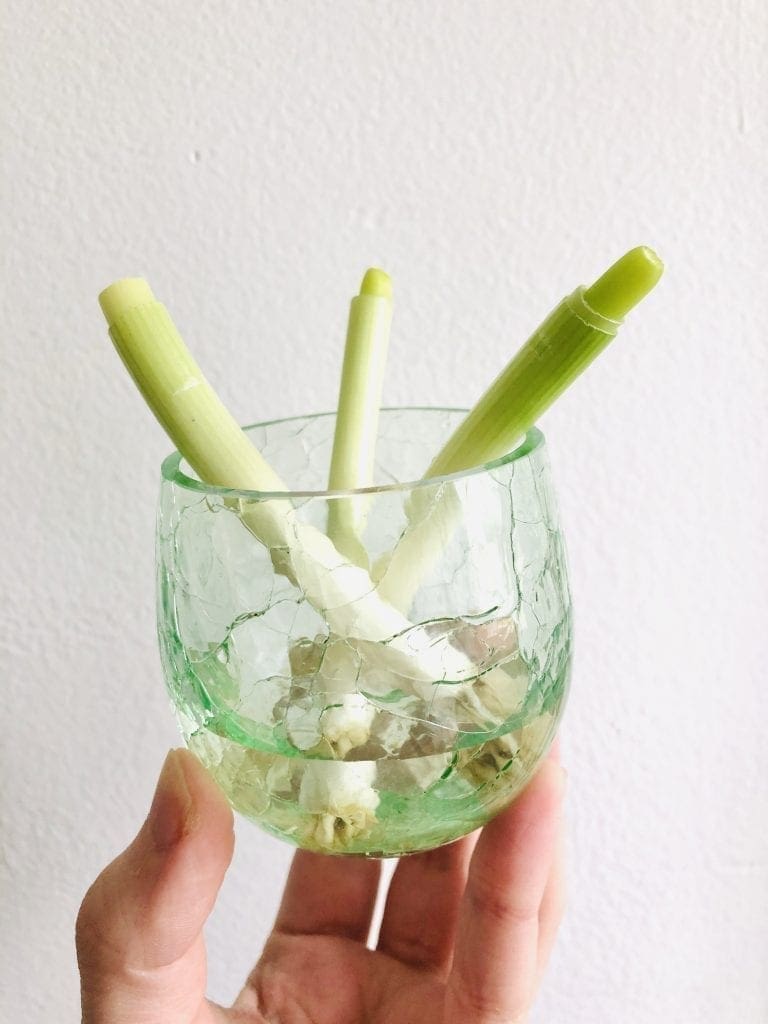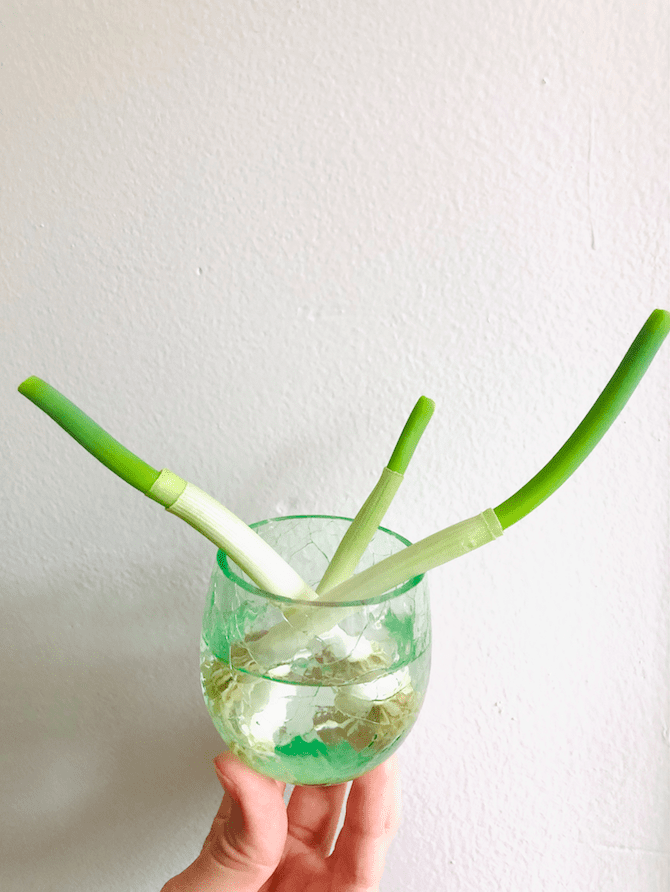Last week, I shared on The Digest’s social media page that I was regrowing scallions that I had in the fridge. Surprisingly, I was met with so many enthusiastic responses and questions that I wanted to follow up with this post on how to regrow vegetables with scraps.
Lately, I’ve been taking on a lot of “projects.” Not because I’ve had an abundance of time on my hands, but something about self-isolation reminded me that there really is no time like the present. I have a garlic-ginger paste fermenting on my kitchen counter, kombucha brewing in the cabinet. Learning how to regrow vegetables with scraps is one of those “projects,” and I’ve found that it couldn’t be easier to do. Seriously, there’s barely any equipment or actual work required.
I’ve personally never had much of a green thumb. Although, I have always been interested in growing my own food. Which, if you say it out loud, doesn’t seem like a very easy thing to do. I’m happy to report that over the past few years, I’ve found success growing my own jalapenos, fresh herbs, cherry tomatoes, baby eggplant.
Given the grocery shortage, now seemed like the perfect time to start thinking about how I could limit my food waste and put every last bit to good use. While it’s still too cold to start planting anything outside, indoors, the sky’s the limit to regrow vegetables with scraps. All you need are vegetable odds and ends, water and sunlight.
So, How Do You Regrow Scallions with Scraps?
Trim about 1 to 3 inches up from the root, making sure to keep it intact. Find a glass or jar that’s narrow enough to keep the scallions standing straight up. (A shot glass comes to mind.) Add a small amount of water to the bottom of the glass and place the scallions scraps in, root side down. Place the container on a windowsill or partially sunny spot in your home and watch them grow! After a week or so, they’ll be ready to use and you can start the process all over again with the same roots.
Progress Report (Day 1 vs. Day 4)


What I Learned
- Change out the water every day. If not, you’ll notice it starts to look cloudy and emit a not-so-nice odor.
- The bottoms (roots) may have that slimy, scallion coating but that’s ok! They’re still good to use.
- Some may grow faster than others. Just have patience.
- You can transfer them to soil once they’ve grown, or you can continue using, cutting and regrowing.
Can You Regrow All Vegetables Using This Method?
Not all produce is created equal. A rule of thumb is anything that contains seeds—tomatoes, peas, string beans, etc—will not regrow with this method. Vegetables that naturally have shoots or leaves—green onions, garlic, leeks, carrots, celery, etc—will generate new growth.
The Vegetables That Work The Best
(Romaine Lettuce, Celery, Bok Choy, Cabbage, Fennel)
Here, you’ll be removing (and saving) the bottoms or bases of the whole vegetable—not just an individual stalk or piece. Cut about an inch or so up from the base and place it cut side up in water just covering the bottom. Place it in a bright window, changing and adding water as needed.
(Scallions, Lemongrass, Leeks, Garlic)
For scallions, leeks and lemongrass, follow the exact steps I mentioned above. For garlic, you won’t be necessarily regrowing the gloves, but rather the shoots. As garlic starts to age, you’ll notice green start to appear in the middle which indicates it’s getting ready to sprout. You might’ve even seen a long, green stem shooting up from the middle of the garlic head. Not to worry.
https://www.instagram.com/p/BzzVp1YgB_7/
You can take those individual cloves with the stems and regrow them. You don’t want to actually submerge them, otherwise they’ll rot, so a trick is to balance the cloves using toothpicks or using a narrow-mouthed vessel so they’re only resting on top of the water. You’ll notice the garlic shoots start to grow out of the top after a few days and then you can snip them off and use them in pastas, salads, etc.
(Carrots, Turnips, Beets, Parsnip)
Similar to garlic, you’re not actually regrowing the vegetables here, but rather the tops. The greens are delicious and can make for an awesome side dish. Remove the tops and place them cut side down in about an inch of water, enough to just cover the base. Place them in a sunny spot and in a few days, you’ll notice the tops start to grow.

Let us know if you plan to regrow vegetables with scraps or have any tips or suggestions on what we should do next!
Abby is The Digest's Managing Editor. She spends her time looking at dogs on Instagram and eating her way around Jersey City.

